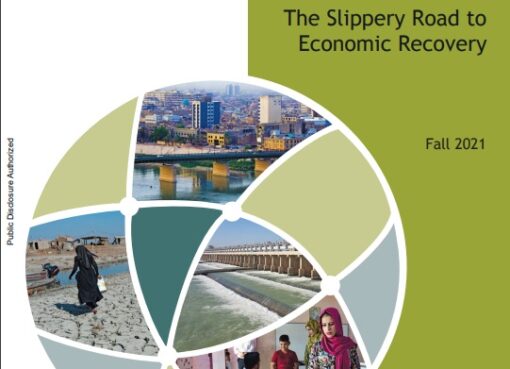Key Messages:
• The Government expenditure for 2013 totals IQD 138.4 Trillion ($ 118.3 Billion), with an increase of 18% over 2012 and exceeding 70% of GDP. The budget has three main headings: Energy, Security / Defense and Social Services, accounting for 21%, 14%, and 13% respectively of total budget.
• Investment Expenditure represents 40% (IQD 55.1 Trillion) of government budgeted expenditure, the largest ever for Iraq. Investment in Oil and Electricity amounts to over 43% of the investment expenditure.
• Government budgeted revenues amount to IQD 119.3 Trillion, with revenues from oil making 93%. The increase in oil revenues, made it possible for the government to cover its operating expenditure and allocate more to investment, yet heavy reliance on oil resulted in a budget fragile to oil shocks, and government going through complementary budgeting, and excessive delays in investment projects implementation.
• Notwithstanding the increase in oil production and revenues, oil alone is not enough to cover budget deficit and contribute to a financial resilient Iraq; financial reserves in Iraq can cover government operating expenditure for less than a year. In order to improve Iraq financial resilience and reserves in the short run, Iraq needs, in addition to its plan to increase oil revenues, to increase non-oil revenues (which are stable, around IQD 7 Trillion, since 2008), and to rationalize operating expenditure (Iraq has one of the largest public sectors relative to population). While in the long run, revenues diversification goes hand by band with diversification of the economy and expansion of the private sector.
• About 60% of Iraqi households are suffering from the lack of at least one of the following: access to improved drinking water source, access to improved sanitation facility, a minimum of 12 hours of electricity from the public network a day, or food security.
• Two factors undermine government’s budget contribution to Iraqi development needs on the ground: first, funds allocated to the key development sectors are insufficient vis-a-vis Iraq’s development needs. For example, in 2013 the total investment budget allocated to Education, Health and Environment, Culture and Youth, and Water and Sanitation, is only IQD 6.5 Trillion, which is equivalent to 50% of the Energy sector investment budget. Second, low execution of investment budget remains a concern, specifically for the aforementioned sectors, having been slightly above 50% in 2011. Not only are the development sectors receiving too little, they are also suffering from inadequate operationalization of pertinent approved funds.
• Iraq is making progress in decentralizing planning at the local level, with governorates identifying their plans through a participatory and evidence-based approach. This progress is not matched with governorates/KRG participation in budgeting and this lack of participation has led to a longer period needed to approve and amend the budget, and to some extent to the low investment execution rate for
the Regional Development Plan>
To continue reading please download the whole document as PDF file








Comment here